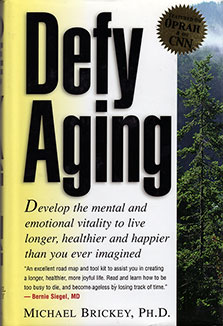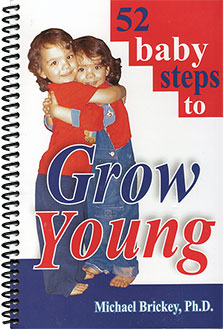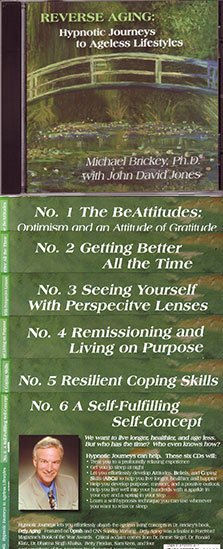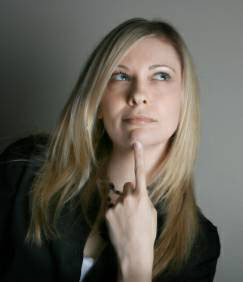The Defy Aging Newsletter
Anti-aging psychology, holistic health, and wellness
These are archives of a biweekly e-mail newsletter for helping you think, feel, look, and be more youthful and live with purpose.
February 7, 2008 Number 181
This issue:
Americans' Health Report Card
Action to take
Be thankful that our resources and environment have become kinder to us as we age.
Why
The headline read, “Are Baby Boomers the First Generation to be Less Healthy Than Their Parents?” What an intriguing question. The answer is complex. Clearly, Americans of all ages are getting fatter, and that brings increased heart disease and diabetes. Much of the data from studies such as the federally funded Health and Retirement study are ratings of subjective measures such as complaints and asking how healthy subjects feel. Compared to previous generations those answers may reflect higher expectations and a greater awareness of health problems.
Factors hurting Americans' health include sedentary lifestyles, fast foods, and a tendency to seek pills to solve health problems instead of addressing root causes (such as nutrition, exercise, posture, and dealing with stress).
There are several healthy trends including:
- fewer smokers
- jobs tend to be safer and less taxing on bodies
- wider availability of healthier foods and organic foods
- more resources to proactively take care of health
- more resources to fix problems, e.g., knee replacements, stents
- science will be offering more and more interventions to prevent and treat health problems
Disability rates for Americans over 65 continue to decline. Comparing 1984 and 2004, for example, Department of Labor statistics find:
- severe disabilities down from 10% to 7%
- mild to moderate disabilities down from 16% to 12%
- no disability rates up from 74% to 81%
These data focus on whether people can do activities of daily living such as bathing, shopping, and meal preparation. The more I thought about it, the more I became impressed that a big factor tipping the scales on the quality of life and lower disability rates as we age is a kinder environment. For those who need it, public and commercial buildings now have elevators, wide doorways, and accessible restrooms. Streets and parking lots have curb cuts and close parking places for those with disabilities. These accommodations not only serve those who are permanently disabled, but also people who broke a leg, are recovering from a knee replacement, etc. Another kinder aspect of our environment is closed captioning on televisions, enabling people with hearing impairments to still "hear" TV. Concept cars at auto shows suggest the future may include car seats that rotate and scoop downward to help drivers who are not agile.
John Edwards talks about the two Americas. He could have just as easily been talking about those who successfully take care of their health and those who do not (often from abuse and neglect; sometimes from genetics, accidents, and misfortune). Overall, as socioeconomic status rises, Americans are more likely to take better care of themselves.
So our health report card is like the report card for our schools—complex and difficult to measure. Two bright spots are our increased resources for taking care of ourselves and an environment that is kinder to people with physical challenges.
Quotes
The only disability in life is a bad attitude.
~ Scott Hamilton
Humor
Things found only in America:
- handicap parking places in front of skating rinks
- drugstores make the sick walk all the way to the back of the store to get prescriptions while healthy customers buy cigarettes in the front of the store
- people order double cheese burgers, large fries, and a diet cola
- drive-up ATMs have Braille lettering
- a pizza can get to your house faster than an ambulance
Reprint this article from:
THE DEFY AGING NEWSLETTER
Anti-Aging Psychology
Holistic Health and Wellness
This newsletter article may be reprinted in E-zines, newsletters, newspapers, and magazines provided the content is not edited and the attribution below is given. Formatting may be changed and you may use one of the web site pictures of the author to accompany the article.
"Dr. Michael Brickey, The Anti-Aging Psychologist, teaches people to think, feel, look and be more youthful. He is an inspiring keynote speaker and Oprah-featured author. His works include: Defy Aging, 52 baby steps to Grow Young, and Reverse Aging (anti-aging hypnosis CDs). Visit www.NotAging.com for a free report on anti-aging secrets and a free newsletter with practical anti-aging tips."






